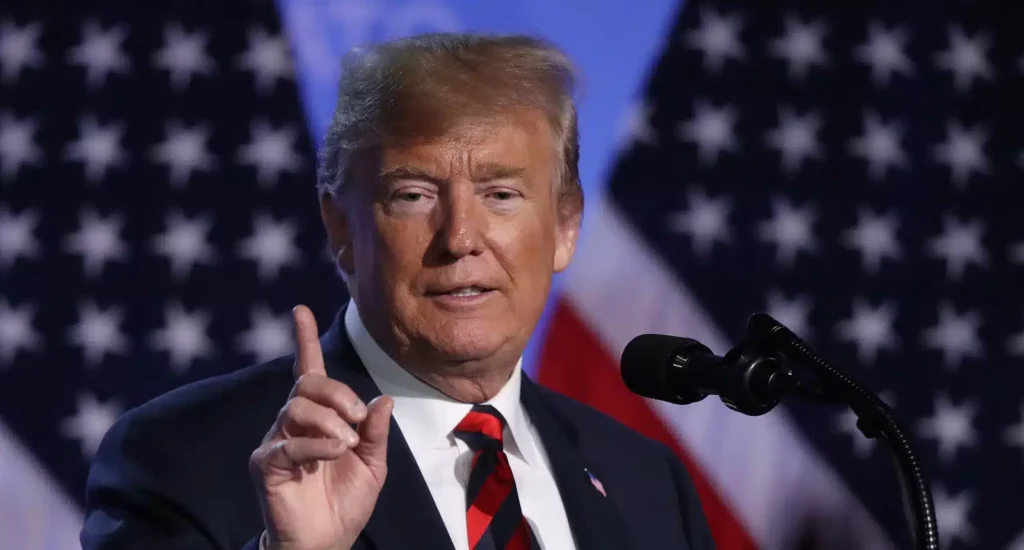
The political sphere is always in motion, with every decision, strategy, and announcement setting new trajectories. As the countdown to the 2024 elections begins, the spotlight is firmly on the major players, and former President Donald Trump is undeniably at the epicenter of these discussions. His recent remarks concerning the GOP debates have ignited a flurry of conversations, leading to widespread speculation and analysis.
Donald Trump, a name that has consistently dominated headlines, has once again piqued interest with his reflections on the GOP debates. These debates, pivotal in the election journey, serve as a stage for candidates to delineate their ideologies, spar with their rivals, and forge a connection with the voting populace. Given their critical role, Trump’s musings about his involvement have become a matter of national interest.
A CBS News poll has shed light on Trump’s formidable lead, showcasing a staggering 62% support from potential voters. These numbers are more than mere statistics; they encapsulate the preferences and inclinations of a vast segment of the American citizenry. The data underscores that Trump’s ideologies, governance style, and policy decisions continue to strike a chord with a significant chunk of the electorate.
In light of this, the pressing question emerges: What’s driving Trump’s contemplation about the debates? While he hasn’t laid out his intentions in explicit terms, his communications via the Truth Social media platform suggest a potential re-evaluation of his role in upcoming GOP debates. This potential stance, though surprising to some, is consistent with Trump’s track record of eschewing political conventions.
Several factors might be influencing Trump’s debate deliberations:
1. Leading the Pack: Given his robust position in the polls, Trump might deduce that the debates offer minimal incremental value. Direct confrontations with rivals might inadvertently elevate their standing, especially in his potential absence.
2. Navigating Media Dynamics: Trump’s rapport with the mainstream media has been intricate and often marked by tension. By potentially sidestepping the debates, Trump might be signaling a shift towards more direct communication avenues, like Truth Social.
3. Strategic Non-Participation: In the grand chessboard of politics, sometimes non-participation can be a strategic move. By staying away, Trump might be creating a scenario where other GOP contenders have to define their positions without the usual benchmark of contrasting against him.
4. Learning from History: Trump’s past debate participations have evoked a spectrum of reactions. By considering a step back, he might be looking to maintain a controlled narrative, free from potential debate-induced controversies.
5. Viewing the Bigger Picture: Debates are but one facet of the election campaign. Trump and his team might be channeling their energies towards a more comprehensive strategy, encompassing direct voter outreach, rallies, and grassroots mobilization.
Yet, every strategic move carries its set of risks. The GOP debates are a golden opportunity for candidates to articulate their vision to the nation. By potentially refraining from participation, Trump might be leaving a void, allowing his competitors to steer the narrative and make inroads with the undecided voter segment.
To sum up, Trump’s insights into the GOP debates provide a window into his strategic thought process as the 2024 elections loom on the horizon. As the political narrative continues to unfold, observers will be keenly tracking how this potential debate approach impacts the GOP contest and the wider electoral dynamics.
Source Conservative Brief

